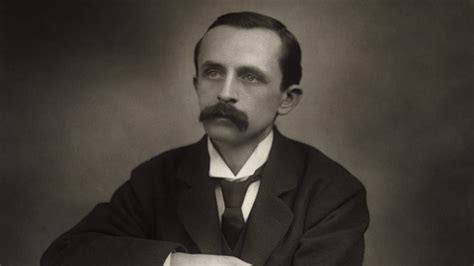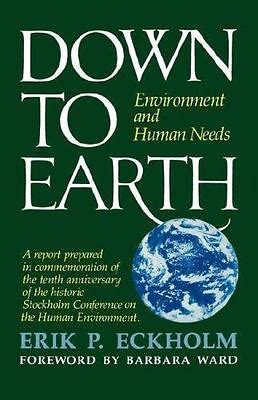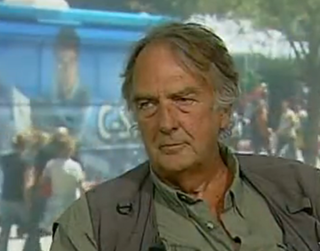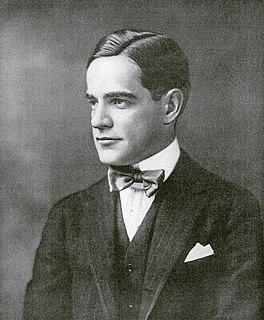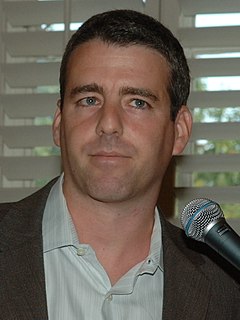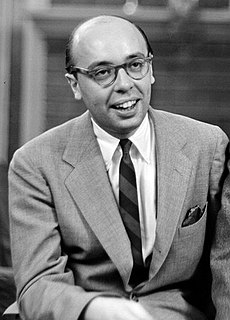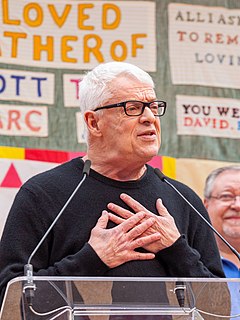Top 1200 Industrial Quotes & Sayings - Page 20
Explore popular Industrial quotes.
Last updated on November 8, 2024.
While the law [of competition] may be sometimes hard for the individual, it is best for the race, because it insures the survival of the fittest in every department. We accept and welcome, therefore, as conditions to which we must accommodate ourselves, great inequality of environment, the concentration of business, industrial and commercial, in the hands of a few, and the law of competition between these, as being not only beneficial, but essential for the future progress of the race.
Even a hundred and fifty years ago, football was popular because it provided a manly spectacle that lots of men needed, after the industrial revolution. We went from a culture that lived out doors and expanded the frontier and fought the Indians to a bunch of guys in offices. So football provided this jolt, a kind of exalted cult of masculinity. And it still does that. Perhaps even more so today.
We have all been brought up with an ethical system of 2,000 years ago, an industrial-managerial system of 200-300 years ago, a statecraft system of 200 years ago, and so on. None of this is working very well for the requirements of a time as complex and variegated as our own. So we stand shuttering at the threshold, with no clear map.
Your ancestors fought for you to have a share in that institution over there. It's yours. See the school board, and every Friday night hold your meetings there. Have your wives clean it up Saturday morning for the children to enter Monday. Your organization is not a praying institution. It's a fighting institution. It's an educational institution along industrial lines. Pray for the dead and fight like hell for the living!
The industrial-technological system may survive or it may break down. If it survives, it MAY eventually achieve a low level of physical and psychological suffering, but only after passing through a long and very painful period of adjustment and only at the cost of permanently reducing human beings and many other living organisms to engineered products and mere cogs in the social machine.
I started by saying that one of the most fateful errors of our age is the belief that the problem of production has been solved. This illusion, I suggested, is mainly due to our inability to recognize that the modern industrial system, with all its intellectual sophistication, consumes the very basis on which is has been erected. To use the language of the economist, it lives on irreplaceable capital which it cheerfully treats as income.
In my opinion, if most urban meat-eaters were to visit an industrial broiler house, to se how the birds are raised, and could see the birds being "harvested" and then being "processed" in a poultry processing plant, they would not be impressed and some, perhaps many of them would swear off eating chicken and perhaps all meat.
The first 10 years of my professional life had only to do with running away from my father. He was a wonderful cabinet-maker, and me being the eldest son, I had to take over his shop, his profession and so on and so on. I tried to escape by going to art school and then going on to industrial design and then interior design.
It's a mistake to think that poor people get the benefit from the welfare system. It's a total fraud. Most welfare go to the rich of this country: the military-industrial complex, the bankers, the foreign dictators, it's totally out of control... This idea that the government has services or goods that they can pass on is a complete farce. Governments have nothing. They can't create anything, they never have. All they can do is steal from one group and give it to another at the destruction of the principles of freedom, and we ought to challenge that concept.
It may be that the invention of the aeroplane flying-machine will be deemed to have been of less material value to the world than the discovery of Bessemer and open-hearth steel, or the perfection of the telegraph, or the introduction of new and more scientific methods in the management of our great industrial works. To us, however, the conquest of the air, to use a hackneyed phrase, is a technical triumph so dramatic and so amazing that it overshadows in importance every feat that the inventor has accomplished.
I think that human beings have gotten as far as we've gotten because of our adaptability, our ability to adapt, and our ability to dovetail our technologies - our brains to our tools. With the Industrial Revolution, we transcended the limits of our muscles. With the digital revolution, we transcend the limits of our minds.
One animal or plant species may become extinct every hour. All species are doomed to extinction, but man through worldwide development/killing animals for food/profit/using toxic chemicals such as pesticides/industrial wastes, will accelerate the extinction of plants/animals and the result will be a more hostile environment for man.
Our government's providing record investments necessary to push the boundaries of knowledge, create jobs, and improve the quality of life of Canadians. Our government is committed to creating the conditions that will allow entrepreneurship to thrive in this country. The collaboration between colleges and local industrial partners generates new products and ideas, creating long-term prosperity for the benefit of all Canadians.
Nuclear man is the man who realizes that his creative powers hold the potential for self-destruction. He sees that in this nuclear age vast new industrial complexes enable man to produce in one hour that which he labored over for years in the past, but he also realizes that these same industries have disturbed the ecological balance and, through air and noise pollution, have contaminated his own milieu.
I attended the High School of Industrial Arts and studied with many great artists as painting is something that you never stop learning about. Actually, in high school there was a time that I was thinking about just concentrating on painting and I asked my music teacher, Mr. Sondberg, for advice and he encouraged me to stick with the music as well. So all my life I have been singing and painting.
What Asia's postwar economic miracle demonstrates is that
capitalism is a path toward economic development that is potentially
available to all countries. No underdeveloped country in the
Third World is disadvantaged simply because it began the growth
process later than Europe, nor are the established industrial powers
capable of blocking the development of a latecomer, provided
that country plays by the rules of economic liberalism.
I grew up listening to bands like the Cure, Joy Division, Cocteau Twins, Dead Can Dance - these are the bands that I actually grew up with, and I always had these things in my taste, too. And I always loved industrial music as well: I listened to Throbbing Gristle, SPK, Cabaret Voltaire. And shoegaze bands like Slowdive and My Bloody Valentine.
Never before has information been so important, to governments and businesses alike. And please don't imagine that some of you gathered here today may be less concerned than others. Globalization means that the "butterfly effect" is everywhere at work. The mistakes of a stockbroker in Singapore or the collapse of the Baht in Bangkok, the decisions of a Finnish industrial concern, or what the Governor of Minas Gerais in Brazil decides to do about his State's debt, have had consequences for the world as a whole.
Legalized drugs would cause dislocations in the US economy - the prison industry for example and tens of billions spent annually on drug enforcement. But because the US economy is so large, this would be a minor blow, hardly as severe as the ultimate nightmare for the US economy, global peace, which would shutter its death industry commonly called the military/industrial complex.
The first thing to recognize is how fortunate Ireland is to be an island off the west coast of Europe, and therefore helped by the prevailing winds to escape the effects of acid rain and other problems. We were also lucky not to have had the same kind of industrial revolution and industry as some other countries. Our problem now is to create employment, but to do it in ways that value our environment.
Much of the present difficulty in industrial relations arises from the fact that too many employers as well as too many legislators take the Labor Leader more seriously than he deserves to be taken, while taking the ordinary, everyday, middle-of-the-road wage-earner less seriously than he deserves to be taken.
Ronald Reagan was an anti-government, union-busting, race baiting, anti-abortion, anti-gay, anti-intellectual, who cut rich people's taxes in half, had a incurable case of the military-industrial complex, and said Medicare was socialism that would destroy our freedom. Both sides really should stop pretending he was something other than the man most responsible for our decline.
Liebig taught the world two great lessons. The first was that in order to teach chemistry it was necessary that students should be taken into a laboratory. The second lesson was that he who is to apply scientific thought and method to industrial problems must have a thorough knowledge of the sciences. The world learned the first lesson more readily than it learned the second.
Every time a significant discovery is being made one sets in motion a tremendous activity in laboratories and industrial enterprises throughout the world. It is like the ant who suddenly finds food and walks back to the anthill while sending out material called food attracting substance. The other ants follow the path immediately in order to benefit from the finding and continue to do so as long as the supply is rich.
It does not follow from the separation of planning and doing in the analysis of work that the planner and the doer should be two different people. It does not follow that the industrial world should be divided into two classes of people: a few who decide what is to be done, design the job, set the pace, rhythm and motions, and order others about; and the many who do what and as they are told.
Coal is a portable climate. It carries the heat of the tropics to Labrador and the polar circle; and it is the means of transporting itself whithersoever it is wanted. Watt and Stephenson whispered in the ear of mankind their secret, that a half-ounce of coal will draw two tons a mile, and coal carries coal, by rail and by boat, to make Canada as warm as Calcutta, and with its comfort brings its industrial power.
When I was trying to figure out why lives have improved so much in the last 300 years, where we've gone from a third of kids dying before 5 to - by 1990 it was down to 10% - now it's down to 5%. And saying why, over all history, there were smart people, but that number didn't change. Average life span didn't change. What's magical about what's been deemed the Industrial Revolution? It's really energy intensity.
This for many people is what is most offensive about hunting—to some, disgusting: that it encourages, or allows, us not only to kill but to take a certain pleasure in killing. It's not as though the rest of us don't countenance the killing of tens of millions of animals every year. Yet for some reason we feel more comfortable with the mechanical killing practiced, out of view and without emotion by industrial agriculture.
When I was a kid, I would come home from school, and my mom would buy the industrial-size Famous Amos cookies or Chips Ahoy when I was lucky. And I would sit in front of the TV set with a glass of milk... and I would dump cookies in there, smash them with my spoon, and eat cookies and milk with a spoon watching 'The Dukes of Hazzard.'
Chroniclers of the role of paper in history are given to extravagant pronouncements: Architecture would not have been possible without paper. Without paper, there would have been no Renaissance. If there had been no paper, the Industrial Revolution would not have been possible. None of these statements is true.
We have been living amidst one of the great revolutions of human history, and we hardly know it: the penetration of the State into every aspect of human life and society. Some people regard this as good and "progressive," others regard it as tyrannical; but either way, it's a fact, a transformation as great as, say, the Industrial Revolution. Absolutely nothing is now beyond the scope of State power.
Socialist revolution aims at liberating the productive forces. The changeover from individual to socialist, collective ownership in agriculture and handicrafts and from capitalist to socialist ownership in private industry and commerce is bound to bring about a tremendous liberation of the productive forces. Thus, the social conditions are being created for a tremendous expansion of industrial and agricultural production.
It is a fact that the entire Kentucky River system, which the central part of the state complacently depends upon for its future water, is deteriorating rapidly because of strip mining, because of bad farming, because of industrial and agricultural pollutants, because of urban sewage. It is deteriorating, that is to say, because almost nobody cares, or cares to know, where water comes from, so long as it keeps coming.
She is a reflection of comfortable middle-class values that do not take seriously the continuing unemployment. What I particularly regret is that she does not take seriously the intellectual decline. Having given up the Empire and the mass production of industrial goods, Britain's future lay in its scientific and artistic pre-eminence. Mrs Thatcher will be long remembered for the damage she has done.
For the pre-Darwinian age had come to be regarded as a Dark Age in which men still believed that the book of Genesis was a standard scientific treatise, and that the only additions to it were Galileo'a demonstration of Leonardo da Vinci's simple remark that the earth is a moon of the sun, Sir Humphrey Davy's invention of the safety lamp, the discovery of electricity, the application of steam to industrial purposes, and the penny post.
... for nearly 40 years, while producing the now-banned industrial coolants known as PCBs at a local factory, Monsanto Co. routinely discharged toxic waste into a west Anniston creek and dumped millions of pounds of PCBs into oozing open-pit landfills. And thousands of pages of Monsanto documents-many emblazoned with warnings such as "CONFIDENTIAL: Read and Destroy"-show that for decades, the corporate giant concealed what it did and what it knew.
Money is what fueled the industrial society. But in the informational society, the fuel, the power, is knowledge. One has now come to see a new class structure divided by those who have information and those who must function out of ignorance. This new class has its power not from money, not from land, but from knowledge.
The legacy of women's war work is our present post-industrial employment structure. It was the war that created the demand for a technologically advanced, de-skilled, low-paid, non-unionized female workforce and paved the way for making part-time work the norm for married women now. A generation later, it was the daughters of wartime women workers who completed their mothers' campaign for equal pay.
Adolescence has been recognised as a stage of human development since medieval times--long, long before the industrial revolution--and, as it is now, has long been seen as a phase which centers on the fusion of sexual and social maturity. Indeed, adolescence as a concept has as long a history as that of puberty, which is sometimes considered more concrete, and hence much easier to name and to recognize.
Every democracy must involve civil society in the process of establishing budgets, and all sectors of society must be consulted to determine what the real priorities of the population are. Lobbies, including military contractors and other representatives of the military-industrial complex, must not be allowed to hijack these priorities to the detriment of the population's real needs.
I wanted to be an industrial designer, so I went to business school for that, and I then went on to marketing at Interpublic Group of Companies, which was one of the first organizations to actually think about brand marketing. I worked on Coca Cola's account, and then I was recruited by Pepsi, and I ended up being Pepsi's first MBA. I was called the High Wire Act because I was in my 20s and I was given jobs of increasing responsibility that I was totally unqualified for.
Angus Deaton has written a wonderful book, The Great Escape: Health, Wealth, and the Origins of Inequality. . . . Deaton's book is a magisterial overview of health, income, and wealth from the industrial revolution to the present, taking in countries poor and rich. Not just jargon-free but equation-free, the book is written with a beautifully lucid style. . . . [P]owerfully argued and convincing.
If we took 75% of the world’s trashed rangeland, we could restore it from agriculture back to functioning prairies — with their animal cohorts — in under fifteen years. We could further sequester all of the carbon that has been released since the beginning of the industrial age. So I find that a hopeful thing because, frankly, we just have to get out of the way. Nature will do the work for us. This planet wants to be grassland and forest. It does not want to be an agricultural mono-crop.
Keep in mind our Constitution predates the Industrial Revolution. Our founders did not know about electricity, the train, telephones, radio, television, automobiles, airplanes, rockets, nuclear weapons, satellites, or space exploration. There's a lot they didn't know about. It would be interesting to see what kind of document they'd draft today. Just keeping it frozen in time won't hack it.
Labor party wants to make the economy fairer for everybody with a new industrial strategy and by investing in different parts of the UK. And we are not following the cynical approach of saying: Young people don't usually vote so we don't have to make any offer to them. But to succeed, we need a progressive future partnership with the EU. It is not easy, but I genuinely think it is possible to do. And I want Labour in power to do it, because the damage that is being done is profound.
The main thing is that Ataturk saw the desperate condition of the countries that had not had an industrial revolution. Ataturk saw where history was going. He really did in Turkey what we are all hoping somebody will do in [Islamic] countries where fundamentalists thrive, that they get somebody today that has the vision that Ataturk had in 1915.
Globally, emissions may have to be reduced, the scientists are telling us, by as much as 60% or 70%, with developed countries likely to have to make even bigger cuts if we're going to allow the developing world to have their share of growing industrial prosperity...The Kyoto Protocol is only the first rather modest step. Much, much deeper emission reductions will be needed in future. The political implications are mind-blowing.
The strength or weakness of a society depends more on the level of its spiritual life than on its level of industrialization. Neither a market economy nor even general abundance constitutes the crowning achievement of human life. If a nation's spiritual energies have been exhausted, it will not be saved from collapse by the most perfect government structure or by any industrial development. A tree with a rotten core cannot stand.
Meanwhile, the U.S. debt remains, as it has been since 1790, a war debt; the United States continues to spend more on its military than do all other nations on earth put together, and military expenditures are not only the basis of the government's industrial policy; they also take up such a huge proportion of the budget that by many estimations, were it not for them, the United States would not run a deficit at all.
The university is a vast public utility which turns out future workers in today's vineyard, the military-industrial complex. They've got to be processed in the most efficient way to see to it that they have the fewest dissenting opinions, that they have just those characteristics which are wholly incompatible with being an intellectual. This is a real internal psychological contradiction. People have to suppress the very questions which reading books raises.
I share the belief of many of my contemporaries that the spiritual crisis pervading all spheres of Western industrial society can be remedied only by a change in our world view. We shall have to shift from the materialistic, dualistic belief that people and their environment are separate, toward a new consciousness of an all-encompassing reality, which embraces the experiencing ego, a reality in which people feel their oneness with animate nature and all of creation.
Since the industrial revolution, cities, and especially the inner cities, were the places for the newly arrived. Voluntary immigrants seeking economic betterment, refugees, the bohemians, the artists - all of those people were crammed into densely populated neighborhoods and tenements. And as people climbed up the economic ladder they moved out, which really accelerated with the "white flight" phenomenon in the '60s and '70s.
What is called music today is all too often only a disguise for the monologue of power. However, and this is the supreme irony of it all, never before have musicians tried so hard to communicate with their audience, and never before has that communication been so deceiving. Music now seems hardly more than a somewhat clumsy excuse for the self-glorification of musicians and the growth of a new industrial sector.
I am a convinced and consistent critic of party-parliamentarism. I am for non-partisan elections of true people's representatives who are accountable to their regions and districts; and who in case of unsatisfactory work can be recalled. I do understand and respect the formation of groups on economical, cooperative, territorial, educational, professional and industrial principles, but I see nothing organic in political parties. Politically motivated ties can be unstable and quite often they have selfish ulterior motives.
A few ideas seem to be agreed upon. Help none but those who help themselves. Educate only at schools which provide in some form for industrial education. These two points should be insisted upon. Let the normal instruction be that men must earn their own living, and that by the labor of their hands as far as may be. This is the gospel of salvation for the colored man. Let the labor not be servile, but in manly occupations like that of the carpenter, the farmer, and the blacksmith.
If the technology cannot shoulder the entire burden of strategic change, it nevertheless can set into motion a series of dynamicsthat present an important challenge to imperative control and the industrial division of labor. The more blurred the distinction between what workers know and what managers know, the more fragile and pointless any traditional relationships of domination and subordination between them will become.
By habits of thrift and economy, by way of the industrial school and college, we are coming up. We are crawling up, working up, yea, bursting up-often through oppression, unjust discrimination and prejudice-but through them all we are coming up, and with proper habits, intelligence, and property, there is no power on earth than can permanently stay our progress.
"Acoustic ecologist" is basically a fancy name for someone who tries to become a better listener. Not just listening to those thoughts, ideas, and productions of human intention, but listening to places - whether it's an urban environment, residential, industrial, or even the farthest corner of the world, in one of our last great quiet places where we can listen to the pure sounds of nature without any human-caused noise intrusions.
It was with the Industrial Revolution, as society plunged ever more eagerly into the conquest of material riches and bent all its energies to the accumulation of goods, that material poverty became a major problem. Obviously, this meant abandonment or downgrading of spiritual values, virtue, etc. To share or not to share in the increase of the collective wealth-this was the Number One question. It was the desire to acquire wealth that prompted the poor to start fighting.
We have to go from what is essentially an industrial model of education, a manufacturing model, which is based on linearity and conformity and batching people. We have to move to a model that is based more on principles of agriculture. We have to recognize that human flourishing is not a mechanical process; it's an organic process. And you cannot predict the outcome of human development. All you can do, like a farmer, is create the conditions under which they will begin to flourish.






